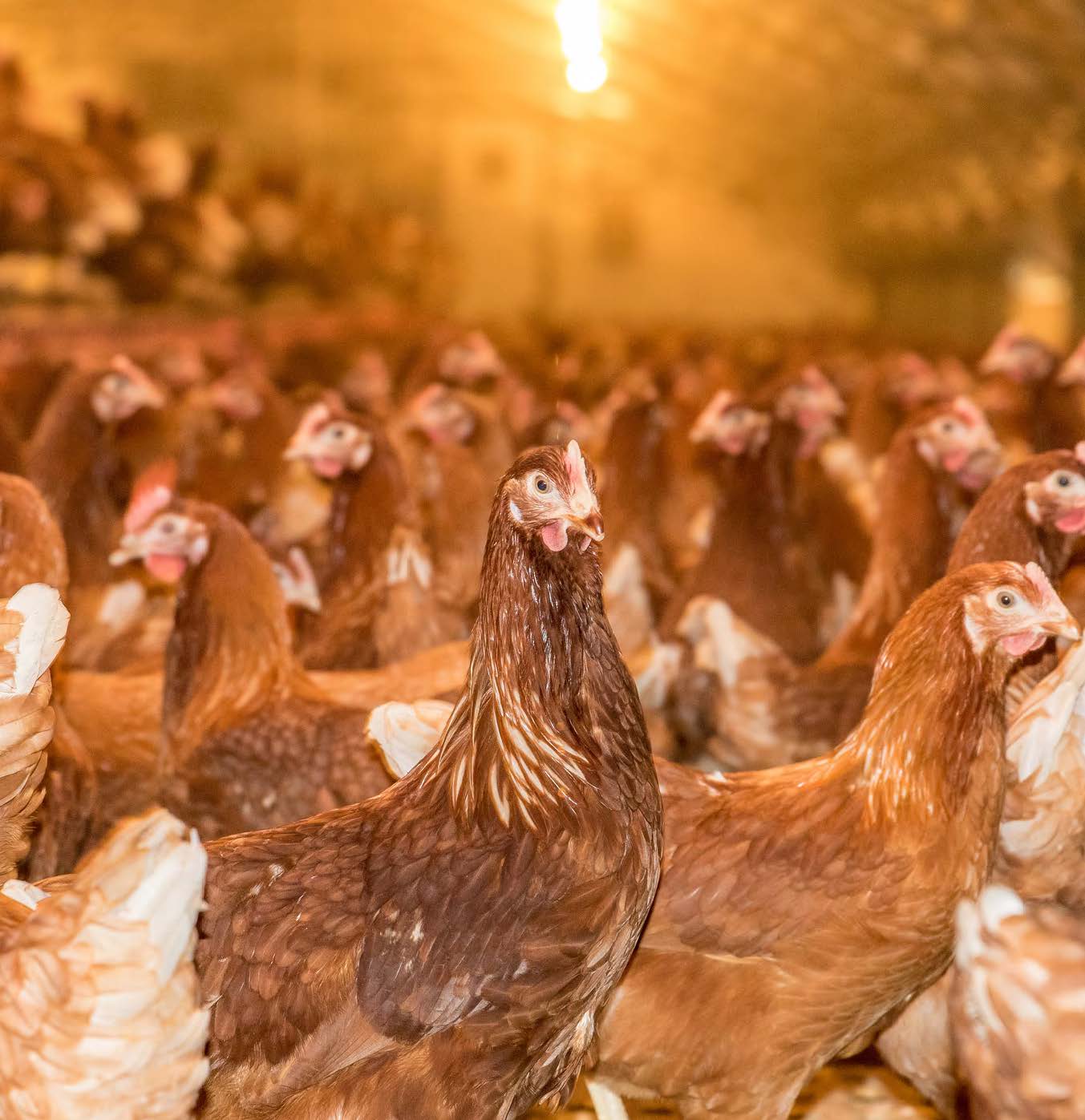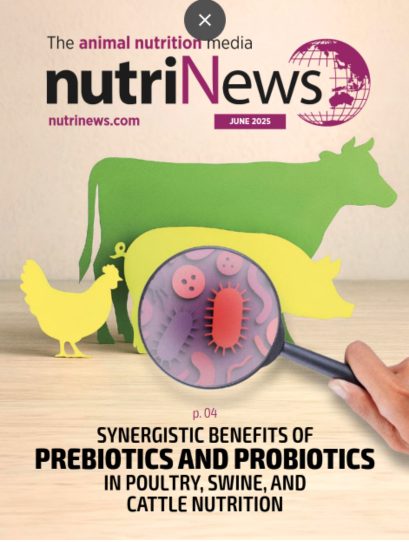Upgrade layer lifecycles to new lengths with nutrition for adaptability
Many layer flocks are operating below their performance potential, because producers are unable to control stressors impacting the potential length of productivity in birds.
This calls for solutions that can help control the response of the bird to a variety of stressors in such a way that high productivity, egg quality and well-being can be maintained for longer.
Research from the University of Athens is helping to increase the understanding of cellular adaptive pathways in the gut and ovary and how they can be regulated by nutritional means with positive effects on layer performance.
Missing Link Between Actual and Potential Performance
The reason why many layer units perform below their potential in terms of productivity and productive life span in hens is often the fact that under commercial conditions the birds are exposed to a variety of stressors that are difficult to control by producers.
These stressors include:
- changes in diet,
- a rise in ambient temperatures,
- xenobiotics (including mycotoxins) in the feed and
- the stress of high productivity.
All of these factors have implications for long-term performance and well-being, as well as the quality of the eggs produced.
This means there is a performance gap that can only be closed if there are ways to support the bird to respond to stressors in more efficient ways or if the bird itself becomes more resilient through genetic selection.
In a commercial environment that is increasingly relying on reducing the cost and environmental footprint of production, laying hens that maintain productivity for longer represent a competitive advantage for the profitability and sustainability of egg production.
Oxidative Stress Induces Aging in Laying Hens
Oxidative stress is a well-known factor that affects the long-term health and productivity of key organs for egg production in the laying hen, i.e. the ovary, gut and liver. It is the result of an increased accumulation of reactive oxygen species (ROS) in response to stressors that the body’s own defence mechanisms are no longer able to counterbalance.
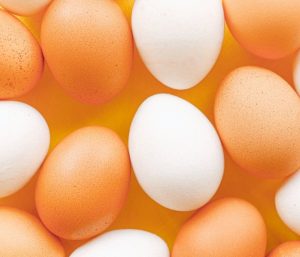
Maintaining high levels of production of good quality eggs in an extended production cycle requires hens to develop and maintain healthy and functional ovaries. It is well known that the decline in ovarian functions over the egg production cycle is linked to ovarian ageing.
Oxidative stress is one of the main causes of ovarian ageing, which is linked to a decline in ovarian function and affects egg production and quality as laying hens get older.
Highly productive laying hens are more vulnerable to oxidative stress and ovarian ageing due to rapid daily ovulations. Loss of tissue and organ function is frequently caused by an excessive buildup of reactive oxygen species.

Growing evidence highlights the crucial balance between ROS and antioxidant levels within the ovary, which is essential for preserving female reproductive health. Excessive ROS accumulation causes oxidative damage, resulting in damage to oocytes in the ovaries, a pivotal contributor to fertility decline.
Factors Accelerating Ovarian Ageing
 ROS accumulate during metabolic activity, which can be exacerbated in periods of high productivity and when the bird is challenged by stressors in its environment or feed. For example, the exposure to heat stress is known to increase the production of ROS at the cellular level and so does the exposure to mycotoxins in poultry feed.
ROS accumulate during metabolic activity, which can be exacerbated in periods of high productivity and when the bird is challenged by stressors in its environment or feed. For example, the exposure to heat stress is known to increase the production of ROS at the cellular level and so does the exposure to mycotoxins in poultry feed.
Hence a lack of support to increase the birds’ antioxidative defence against ROS particularly during more challenging periods of the production cycle can lead to an increased rate of decline of the ovaries.
This limits the ability to extend laying cycles, reduces egg production and decreases the commercial value of laying hens.
Increasing Understanding of Cellular Adaptive Mechanisms
A better understanding of the mechanisms underlying ovarian ageing and possibilities to mitigate oxidative stress is helping to find ways to prolong ovarian lifespans and thus potentially increase the length of productivity for egg production in laying hens.
The underlying mechanisms for the decline in the antioxidative capacity of ovaries of laying hens during the ageing process have been linked to the down-regulation of the nuclear factor erythroid 2-related factor 2 (Nrf2) gene expression in the Nrf2-KEAP1 pathway at the cellular level.
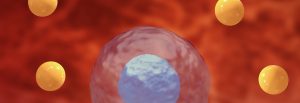
This signalling pathway is involved in the mobilisation of cellular antioxidant defences to alleviate oxidative stress in tissues. Nrf2 upregulates antioxidant response elements (AREs)-mediated expression of antioxidant enzyme and cytoprotective proteins. Classical antioxidant enzymes inactivate ROS and prevent ROS-initiated reactions.
These antioxidant enzymes include superoxide dismutases (SODs) 1, 2, and 3, catalase, glutathione peroxidase (GPx), and GSH reductase.
Egg quality parameters such as albumen height, Haugh Unit (HU), egg- shell thickness and eggshell strength have been shown to be depressed when the Nrf2-Keap-1 pathway was impaired.
A decrease in the expression of Nrf2-related genes in response to stress factors such as heat stress and mycotoxins has also been associated with a reduction in productivity and intestinal health in chickens.
Nutritional Modulation of Cellular Adaptive Pathways
Peer-reviewed laying hen nutrition research carried out at the University of Athens suggests that the response of important cellular adaptive pathways in the gut and ovary can be modulated in favour of positive outcomes for productivity.
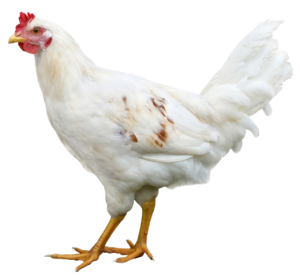
In a 12-week study, Hy-Line brown laying hens were given a gut agility activator in their feed to assess its effects. This gut agility activator, a mix of plant compounds, was tested at various doses and compared to a standard diet. It was found to enhance egg-laying rates and positively influence gene expression related to detoxification and antioxidant defence in the hens’ gut and ovaries, suggesting a reduced need for detoxification and a boost in antioxidant capacity.
Critical genes for cell protection against oxidation from the Nrf2 pathway were upregulated at week 12 of the experiment in the gut and ovary.
The activation of the Nrf2 pathway not only significantly upregulated superoxide dismutase (SOD1) but also gene expression of other important antioxidant enzymes such as GPX2, GSR and PRDX1 in both the gut and ovaries of the laying hens.
The researchers interpreted the results at the molecular level as an increased antioxidant capacity in the bird in response to the treated diet.
Conclusions
Advances in the understanding of cellular adaptive pathways in the laying hen in combination with nutritional strategies to support long-life ovarian function can enhance the control egg producers have over sustaining longer laying cycles in their flocks. In addition, it is paving the way for increased capabilities to further improve the economics and sustainability of egg production.

